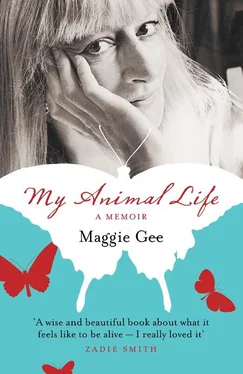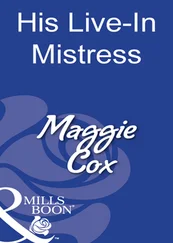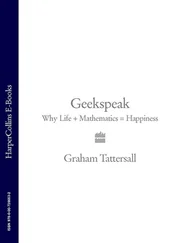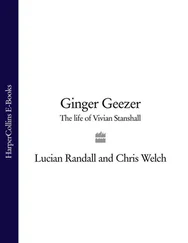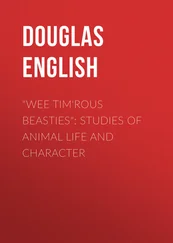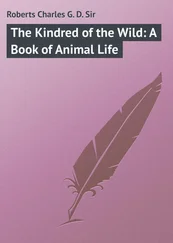Loving life as I do, I would like to have another one, to go on trying to understand. But my rational mind thinks, with regret, that there must be an infinite variety of souls or selfhoods, as there is an endless serendipity of currents on the sea; why should one soul be reused? (And another voice, holding to belief, says, ‘Nothing in the world disappears. Mass becomes energy, heat becomes light, bones are made from stardust, ash feeds the roses.’ Why should the tiny detailed net of tensile electrical connectivity that is a single consciousness be lost?)
The first voice answers, we have to make room. There has to be space for the not-yet-born, for becoming, or the system would be dead and closed. Our ‘once-ness’ makes us, and the world, and love, more precious.
It will just be hard to say goodbye, one day. Harder than the headlong fearful rush down the dark tunnel that brought me — a six-pound mewling animal, skinny, half-blinded by the light, shining with womb-grease, mother-naked, sucking up air as I woke — into this radiant, temporary room.
I was born in 1948, three years after the end of the war, during which my father Victor (always Vic) had been a meteorologist in the Air Force, posted in India and Iceland. He had said to my mother, as fathers say when they are in love, ‘I want a little girl just like you.’ What he got, in fact, was a reverse image; I was as pale as my mother was dark and vibrant; I had lint-white fine hair and she had thick black waves; her skin was olive, mine, as a child, transparent. (But thirty-eight years later, by the long-distance mathematics of genes, my own daughter would be born, blonde like me but with curls, lips, cheeks, eyes like my mother’s: the ‘little girl just like you’.)
There was still rationing, I think until I was about four or five years old, because I remember red stamps in a grey book, and picking up orange juice from a Nissen hut. And the excitement of Grandpa Church, my mother’s father, producing a pineapple as a present, when I was at infants’ school. I recorded this in my diary, and the teacher unwisely wrote in pencil, ‘Where did he get it?’ I reflected on my grandfather’s life and added, ‘He got it down the pub,’ which made my mother indignant.
That is the age when everything you know, you know without doubt, even when it is completely wrong. ‘Idiot’ was pronounced ‘eye-dot’, because that was the way I first read it to myself. I told my father, with great conviction, that Uncle Stan had come to visit my mother, indeed I still seem to remember seeing dark-haired, skinny, smiling Uncle Stan, husband of my mother’s beautiful sister Alice, coming to the back door of our Victorian semi in Bromsgrove, and being welcomed with a shout of pleasure from my mother. But Uncle Stan had never been to Bromsgrove, and did not look as I described him either, so my story about the ‘uncle’ put my father in a jealous rage. I had ‘too much imagination’, of course, and everything I clearly imagined, I believed to be true.
At night this produced both excitements and horrors. Like many children and few adults, I ‘saw’ things on the darkness, clear and vivid, with my eyes open; to science it’s a known phenomenon, ‘eidetic imagery’. They were real and bright as day; historical pageants, in which I was somehow a part, having lived before (as I believed until I was well into my teens), turreted Disneyesque castles outlined against technicolour cloudscapes, heroic adventures my brother and I marched away on. Sometimes however the visions went wrong. I would see the chain-link fences that were everywhere then, around institutions like schools, grey links of metal in rounded-off diamonds supported by rusting struts, and one night my room was so chokingly full of it, marching down on me from every wall, that I called my mother in a panic.
She must have been tired, or my father was in a bad mood, because the one who arrived, with her back to the lit-up landing, black against the light, was the other mother I clearly knew also existed, not my loving, gentle mother but her doppelgänger, angry and slightly hoarse. I told her about the chain mail, which she could not see although it was everywhere. She tried to be kind, and was kind, looking round the world she could see for any evidence of fencing, and finally came up with some dark braid dangling from the edge of the round papyrus lampshade above my bed. I thought, ‘This is hopeless,’ and then I was kind. Because I saw that she needed to go, and she could not help me; and in any case, she had come, and the landing light made my room less frightening, more finite, and me less afraid, so I pretended the braid was the only problem, and she fetched some scissors and cut the ends off, then went away leaving the landing light on and the door half-open and myself only half-alone, and at least half-comforted. Because as long as love tries, it is love, though we all live in different worlds. If love is the urge behind the act, then surely there are no objective failures? And to think you are loved enough — to list, sometimes, the names of those who have loved you and who you love, without drawing up more demanding accounts of profit and loss — is for me the beginning of happiness.
instead of Jane
Print arrived, as an extension of myself, when I was seven or eight. For today’s children with their keyboards and computers and printers, there’s nothing magic about it. But print, in the 1950s, was something removed from the sphere of childhood, something professional and grownup. To me it became an obsessive excitement.
Children like me learned to write in pencil, with unsatisfying slowness. I was hard on myself about writing; I liked to write my name in all my books, but then only months later would go back and be appalled by the crippled ‘M’ like a collapsing mountain range, the big straggly ‘A’ with its tepee-like overgrowth at the top, the ‘R’ like a rudimentary bird, the ‘g’ in ‘Margaret’ a sudden lower-case, humble and loopy, scraping the bottom of the barrel of my name, the uneven capital letters of ‘GEE’ in a drunken final dance, with ‘E’s like broken forks. I rubbed out and rewrote so many times that the frontispieces of my books were worn bare.
Why was I so harsh? It’s true that, in different ways, both my parents were perfectionists, a trait which imprints itself without fail on the children in letters of fire. But I remember my mother protesting at the time and saying, ‘That writing was very good for your age, leave it alone.’ I refused to stop rubbing, worrying a blurry grey hole in the page. More likely this habit went back to my first day at the Bromsgrove, Worcestershire, infants’ school, when a teacher whose name I don’t remember gave us all strips of pale cardboard with our names on to copy into books, and instead I wrote down, triumphant, the name as my mother had taught it me, big, in capitals, MARGARET MARY GEE: which was roundly rejected by my teacher, who told me, ‘We don’t write in capitals now we are at school,’ took my paper away and made me do it again like the cardboard strip, correctly. I went home ashamed and infused with scorn for myself and my mother, though of course, as any parent will know, big letters are easier to write with their straight lines and right-angles. But they weren’t on the teacher’s card.
This was the start of a troubled relationship to writing by hand that lasted until I was in my mid-teens. Too deferential on that first day, too critical later of my own first tries, I became in time a guerrilla warrior of handwriting. We seemed always to be moving schools (I went to three different primary schools as my family moved from Worcestershire to Sussex) and at each fresh school, I had the secret advantage of knowing, as the new teacher did not, what I had been taught before. The first time I moved, to tiny Watersfield village school where all the juniors sat in one room, divided by age into rows, I said, with perfect honesty, that I had been taught at Bromsgrove to write in loops, and found to my surprise I was allowed to keep them, in the face of Roman-nosed Mr Norris’s preferred italics. In any case it didn’t really matter how I wrote, since I could not in any respect learn to handle the new school’s white china ink-pots, full of made-up lumpy ink, that slotted into holes in the rows of desks, nor the stained wooden dip-pens with their tortured and twisted metal beaks, some crossed, which spluttered and creaked on our exercise books. I was ink all over: hands, face, books, skirt.
Читать дальше
